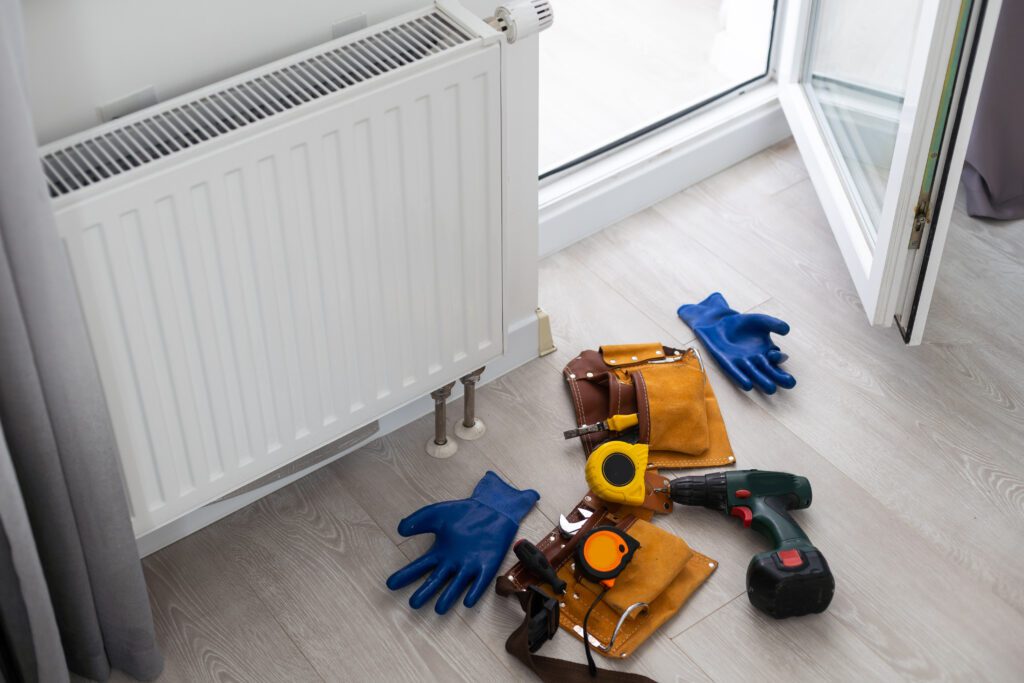As winter descends upon the Eastern Panhandle, residents often find themselves relying heavily on their heating systems. When these systems fail, the situation can quickly turn into an emergency. This guide will provide you with crucial tips and information to navigate through heating emergencies, ensuring that you and your family stay warm and safe.
Understanding the Basics of Your Heating System
Before diving into emergency repairs, it’s important to understand the basics of your heating system. Familiarizing yourself with how your system operates can simplify troubleshooting when problems arise.
Key Components of a Heating System
Your heating system consists of several key components, each playing a vital role in delivering warmth to your home. The primary elements include:
- Thermostat: This device regulates the temperature by signaling the heating system to turn on or off.
- Boiler or Furnace: This is the primary heat source, either heating water or air that is circulated throughout your home.
- Ductwork or Pipes: These are the channels through which heat is distributed; ducts distribute warm air, while pipes transport heated water.
- Heat Exchanger: Located within your furnace or boiler, it transfers heat from the fuel source to the air or water.
Having a good grasp of these components can help you quickly identify where issues may be occurring within your heating system. Additionally, regular maintenance of these parts can significantly extend the lifespan of your heating system and improve its efficiency. For instance, changing filters in your furnace or cleaning your boiler can prevent dust and debris from accumulating, which can lead to overheating and system failures.
How Your Heating System Works
Heating systems generally operate on two principles: convection and radiation. Convection heating involves warming the air, which is then circulated using fans or natural convection. Radiation, on the other hand, relies on radiant heat from hot surfaces or water to raise the temperature in a room.
Furnaces and boilers typically use fuel sources such as electricity, natural gas, or oil. Understanding which type of system you have can help in the repair process and in selecting the correct maintenance routine. For example, gas furnaces often require regular checks for gas leaks and carbon monoxide emissions, while electric systems may need inspections of electrical connections and components to ensure safety and efficiency.
Moreover, modern heating systems often incorporate smart technology, allowing homeowners to monitor and control their heating remotely. This can lead to better energy management and cost savings, as you can adjust the temperature based on your schedule or even receive alerts about maintenance needs. Understanding these advancements can empower you to make informed decisions about upgrades or replacements that could enhance your home’s comfort and efficiency.
Recognizing Common Heating Problems
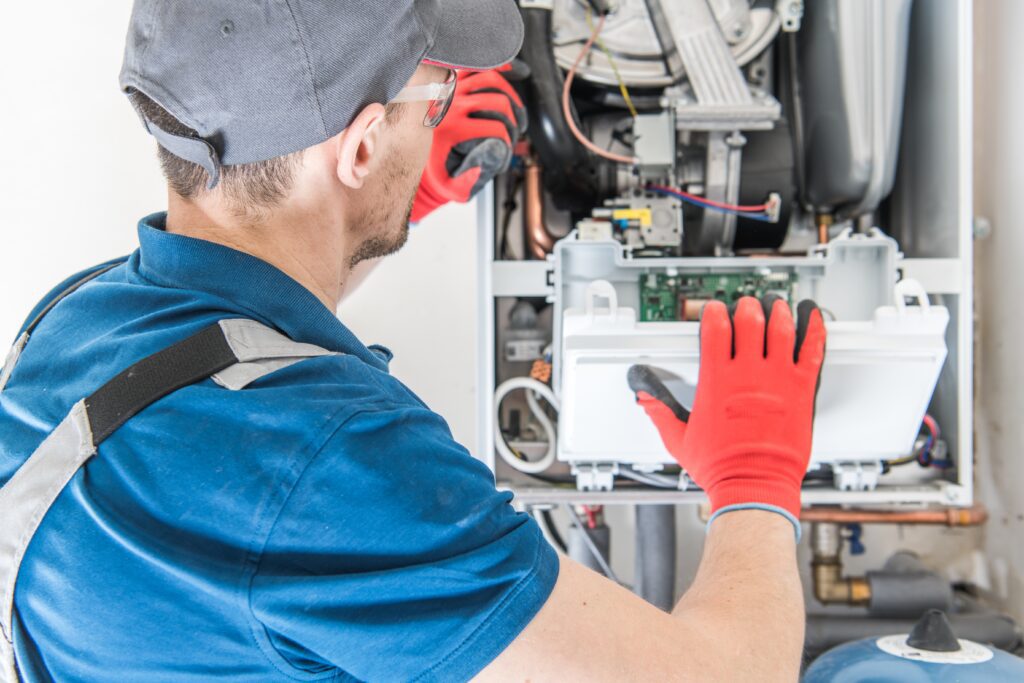
Heating emergencies often come with telltale signs. Spotting these symptoms early can help mitigate the situation before it escalates into a serious issue.
Signs Your Heating System Needs Repair
If your heating system is performing poorly, look for signs such as:
- Inconsistent Heating: Rooms that fail to warm up can indicate airflow issues or system malfunctions.
- Strange Noises: Banging, grinding, or squeaking noises may suggest loose components or mechanical problems.
- Unusual Odors: A burning smell could indicate problems with wiring, while a gas smell needs immediate attention.
- Increased Energy Bills: If your energy costs rise without an obvious increase in usage, your heating system may be failing.
Being aware of these symptoms is crucial for preventing emergencies and maintaining a functional heating system. Additionally, homeowners should consider setting a regular schedule for inspections and maintenance checks, as these proactive measures can often catch minor issues before they develop into major problems. Keeping an eye on your thermostat settings and ensuring they align with your comfort levels can also provide insight into potential heating inefficiencies.
Potential Causes of Heating System Failure
Several factors can lead to heating system failures, including:
- Lack of Maintenance: Regular servicing is essential for any heating system to function optimally.
- Old Age: Systems over 15 years old may struggle to perform efficiently and require replacement parts.
- Blocked Ducts or Vents: Dust and debris can obstruct airflow, reducing efficiency.
- Electrical Issues: Faulty wiring or fuses can hamper the heating process.
Identifying these issues early can save both time and money, preventing extensive repairs and replacements. Moreover, understanding the specific components of your heating system can provide valuable insight into potential problems. For instance, furnaces, heat pumps, and boilers each have unique maintenance needs and common failure points. Familiarizing yourself with these can empower you to take action swiftly when issues arise, ensuring that your home remains warm and comfortable during the colder months. Additionally, investing in high-quality air filters and regularly changing them can significantly improve your system’s efficiency and longevity, further safeguarding against unexpected breakdowns.
Immediate Steps to Take in a Heating Emergency
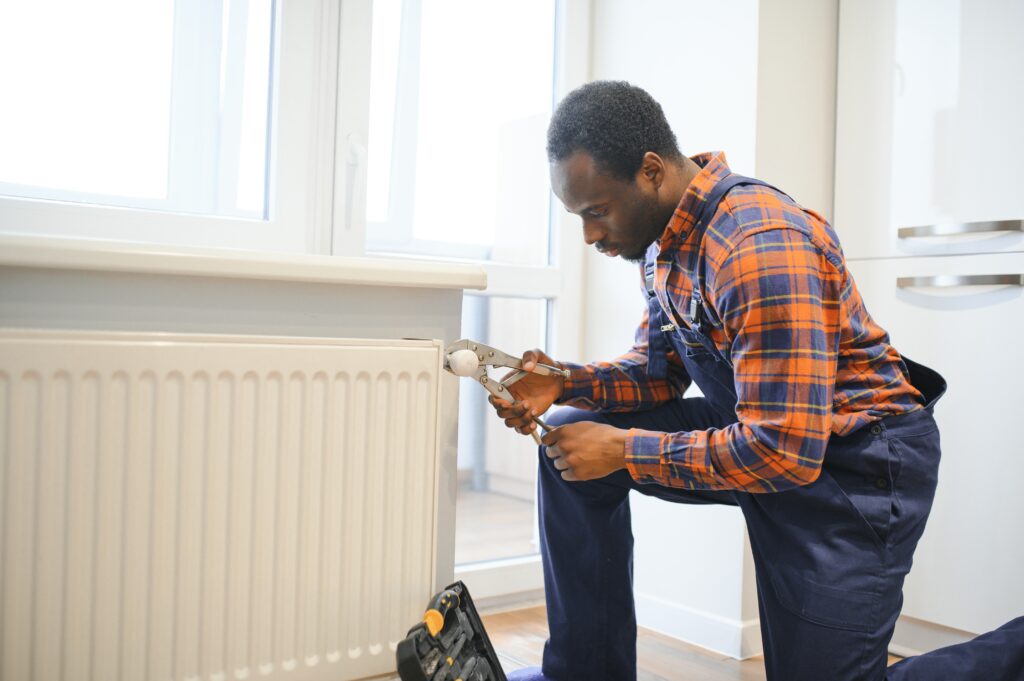
When faced with a heating emergency, staying calm and taking purposeful actions can significantly impact your situation. Here are immediate steps to consider.
Safety Measures to Consider
Your safety should be your first priority. If you smell gas or detect any other hazardous situations:
- Evacuate the premises immediately.
- Call the gas company or local authorities to report the issue.
- Avoid using any electrical devices that could create sparks.
Once you are safe, keep your family together in a warm location, if possible, and wait for help. It’s also wise to have a designated meeting point outside your home where everyone can gather, ensuring that no one is left behind or unaccounted for. This can help reduce panic and confusion during an already stressful situation.
Temporary Solutions to Keep Warm
If your heating system has failed but poses no safety hazard, consider these temporary solutions to keep your home warm:
- Layer Clothing: Wear extra layers to keep your body heat contained.
- Use Space Heaters: If you have electric space heaters, use them to heat individual rooms.
- Seal Drafts: Use blankets or towels to block drafts from windows and doors, conserving the warm air in your home.
These tactics can help maintain a livable temperature until professional help arrives. Additionally, you might want to gather everyone in a single room, as this can help conserve heat more effectively. Close off any unused rooms to minimize the area that needs to be heated. If you have access to a fireplace, using it safely can also provide warmth, but ensure that you have a proper ventilation system in place to avoid smoke inhalation.
Moreover, staying hydrated and nourished can help your body maintain warmth. Prepare warm drinks like herbal tea or hot chocolate, which can provide comfort and warmth from the inside out. If you have a portable charger, keep your devices charged to stay connected and informed about the situation, as updates from local authorities can be crucial during a heating emergency.
DIY Heating Repair Tips
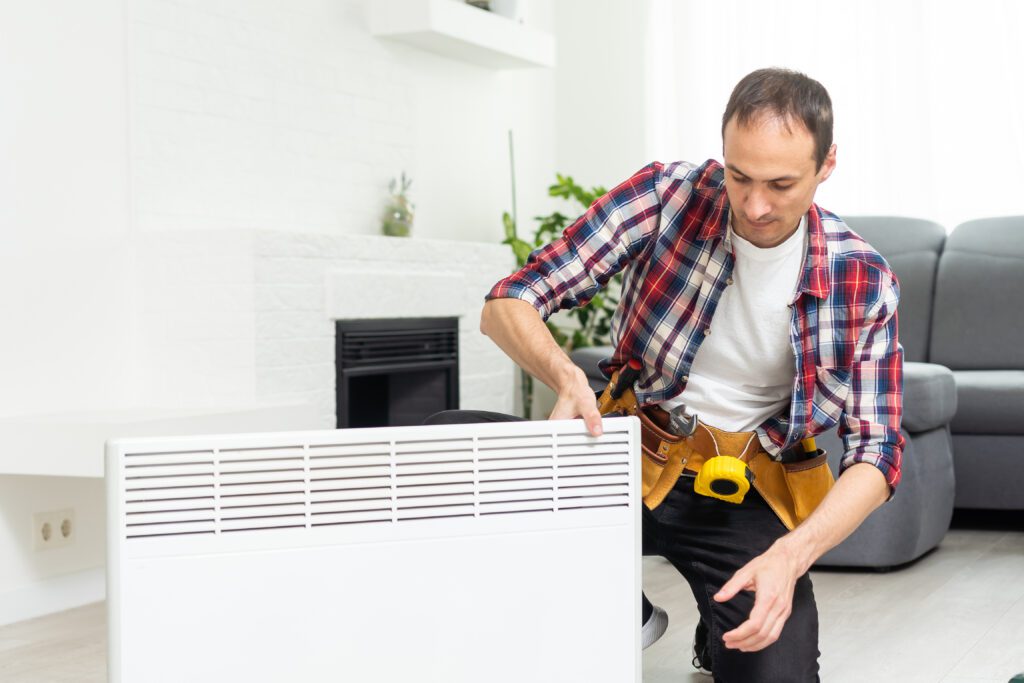
While some heating issues require professional intervention, several DIY fixes can be done to alleviate minor problems. Understanding your heating system and knowing how to troubleshoot can save you time and money, especially during the colder months when heating is essential for comfort.
Simple Fixes for Common Problems
Before calling a professional, consider these simple DIY repairs:
- Change the Air Filter: A clogged filter can cause inefficient heating. Replacing it regularly helps maintain airflow. It’s recommended to check your filter monthly, especially during peak usage seasons, to ensure optimal performance.
- Check the Thermostat: Ensure it is properly set and functional. Sometimes, recalibrating or replacing the batteries is all that’s needed. Additionally, consider upgrading to a programmable thermostat, which can help manage your heating more efficiently and save on energy costs.
- Bleed Radiators: If you have a radiator heating system, releasing trapped air can increase efficiency. Use a radiator key to open the valve slightly until water begins to flow, which can significantly improve heat distribution throughout your home.
These minor fixes can help restore functionality and prevent unnecessary service calls. Regular maintenance, such as cleaning vents and checking for blockages, can also contribute to a more efficient heating system, ensuring that your home remains warm and inviting during the winter months.
When to Call a Professional
Not all issues can be addressed through DIY methods. Call a professional if you encounter:
- Electrical issues that pose a safety risk. If you notice flickering lights or strange sounds coming from your heating unit, it’s best to seek expert assistance.
- Gas leaks or unusual smells. A gas leak is a serious hazard that requires immediate attention from a qualified technician.
- Persistent problems after completing basic repairs. If your heating system still underperforms despite your efforts, it could indicate a more complex issue that needs professional diagnosis.
Trusting a qualified technician ensures that your heating system gets the care it needs without risking further complications. They can provide a thorough inspection and suggest upgrades or replacements that could improve your system’s efficiency and longevity, ultimately leading to a more comfortable living environment.
Preventative Measures for Heating Emergencies
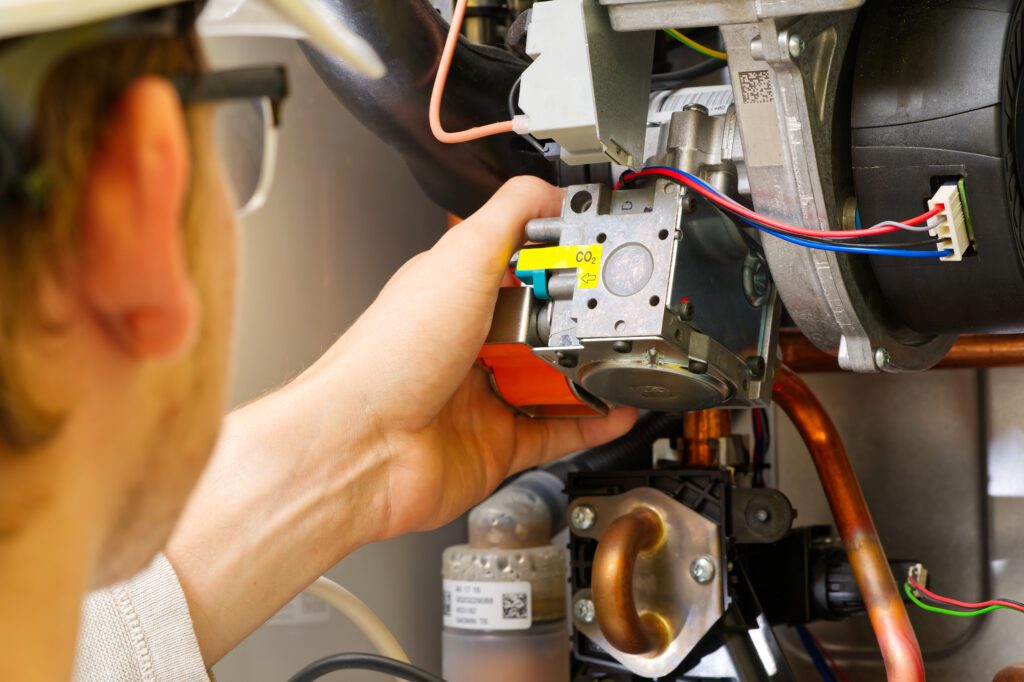
Taking steps to prevent heating issues can save money and stress down the line. Prevention strategies include regular maintenance and evaluating the age of your system.
Regular Maintenance and Inspection
Schedule annual maintenance for your heating system to ensure optimal performance. During a maintenance check, technicians can:
- Inspect and clean components.
- Identify potential issues before they escalate.
- Ensure safety features are functional.
Regular inspections can help extend the lifespan of your system while providing peace of mind. Additionally, it’s beneficial to change or clean your air filters every few months, as clogged filters can restrict airflow and force your system to work harder, leading to increased energy consumption and potential breakdowns. Keeping vents and registers unobstructed is also crucial; furniture, drapes, and other objects can impede airflow, causing uneven heating and unnecessary strain on your system.
Upgrading Your Heating System
If your heating system is outdated and frequently requires repairs, consider upgrading to a more efficient model. Newer systems offer:
- Lower energy costs due to improved technology.
- Greater reliability with better warranties.
- Enhanced safety features to protect your home and family.
Investing in a modern heating system can not only enhance comfort but also save you money over time. Furthermore, many new heating systems come equipped with smart technology that allows you to monitor and control your home’s temperature remotely. This feature not only provides convenience but can also lead to significant energy savings by allowing you to adjust settings based on your schedule and preferences.
By understanding your heating system and taking proactive measures, you can minimize the risks associated with heating emergencies. Equip yourself with knowledge, regularly maintain your system, and address issues promptly to ensure that your home remains warm and safe throughout the winter months. Additionally, consider creating a heating emergency plan that includes contact information for local HVAC professionals, as well as a checklist of steps to take if your heating system fails unexpectedly. This preparedness can make a significant difference in how quickly you can respond to any heating-related issues that arise.

